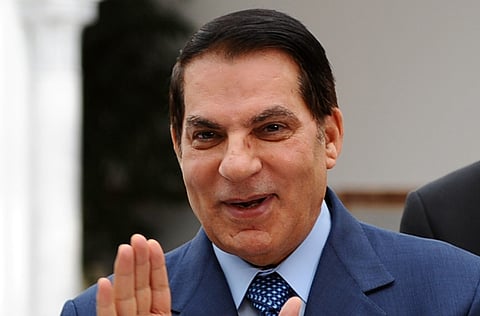Qatar's leadership is politically astute
Despite the criticism, it looks to play a constructive role all around the world, and has dedicated its natural resources for the service of its people

The media campaign against Qatar by regimes put under pressure by the Arab Spring does not come as a surprise. These regimes' media make various accusations against Qatar while popular uprisings are on the brink of blowing them away as in the case of Zine Al Abidine Bin Ali, Hosni Mubarak and Muammar Gaddafi.
Strong and regrettable words are used by these media outlets against Qatar's leadership and people. However, these same words are also directed against the opposition in their countries.
The media war is in full steam in these crisis-stricken countries against almost all international and Arab media outlets, and against all the Arab countries that voted for the imposition of sanctions against Syria.
However, Qatar has topped the list of countries being demonised as Syria's enemies. Why? Because Qatar presently heads the Arab League, and is home to the TV station Al Jazeera, which is seen as an important reason behind the Arab Spring. The channel also gives publicity to information such as that revealed by WikiLeaks and exposes the activities of some Arab governments.
From a spectator's point of view, these two reasons are sufficient to ignite clashes between the despotic regimes in some Arab countries and the government of Qatar.
Added to these two reasons is the vigorous political leadership in Qatar, which has taken upon itself a great responsibility. In fact, it has undertaken responsibilities that much bigger countries, including those that have much more experience in addressing key Arab issues, were unable to shoulder.
Looking ahead
Qatar, for those who do not know the country, is a small state with a small population. However, it is rich in natural resources; it is also blessed with a youthful and enthusiastic leadership. It also looks forward to playing a constructive role all around the world, and has dedicated its natural resources for the service of its people, its surrounding Arab region, and the human community at large.
The country's leadership is highly politically aware, and is knowledgeable about requirements of the modern world, and about its region.
And despite its involvement in various issues and overcoming many hurdles in its path, we find that Qatar only takes up any new venture after ensuring that it can bring it to fruition. Hence, Qatar needs to fear nothing as Allah is its protector.
Again, for those who do not know the country, Qatar was established by the late pious poet Shaikh Jasem Bin Mohammad Al Thani. He was the 51-year-old shaikh who was appointed governor by the Ottomans in 1876. He was also the ruler who stood in the face of his neighbours, the Otoubs and the Ashraf, who wanted to take over Qatar.
He also resisted the Turks and other invaders and struck alliances with domestic tribes. He commenced from Doha to create an independent entity by the sea in the peninsula. He established a political body that was protected by natural boundaries and the unity of his people in their beliefs, and Arab traditions.
The people of Qatar are of the Ma'adeed of Bani Tamim, who are known in Arab proverbs. One such proverb says: "If the Tamims are angered, all Arabs will be angry."
Education
Since its establishment, Qatar has held many distinctions. After discovering the wealth bestowed upon the country by God, it founded schools and educational institutes. Many Arab Gulf nationals, and most of the UAE's founders, graduated from these institutions.
Last but not least, Qatar has invested in science and technology. Its leadership believes in the art of the possible and works in line with this theory.
It is a country with an extremely transparent leadership, which gives it tremendous credibility.
Upon meeting Qatar's Emir Shaikh Hamad Bin Khalifa Al Thani a few years ago, and after he talked about a number of national issues, I asked him about an issue that on the surface seems a contradiction: the presence of Al Jazeera on the one hand, and the US Sailiya base and the Israeli Trade Bureau in his country on the other.
He answered in a very convincing manner: "We do not play under the table, doctor. What we think and what we do is in the open for we do not believe in secret deals. We know our interests and we respect the right of others to safeguard their interests. We will not be more royal than the king."
Dr Khalifa Rashid Al Shaali is an Emirati writer who specialises in legal affairs.



